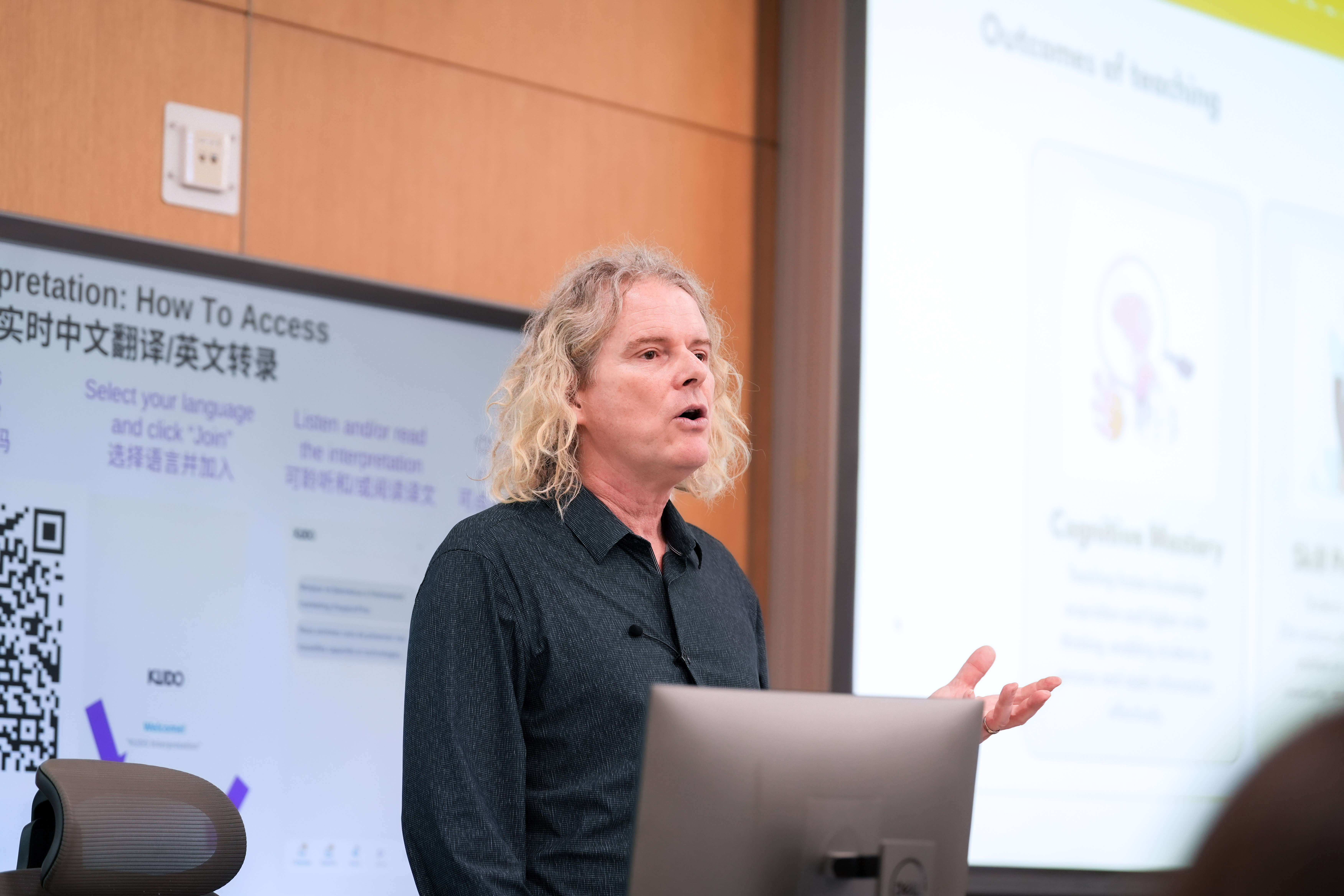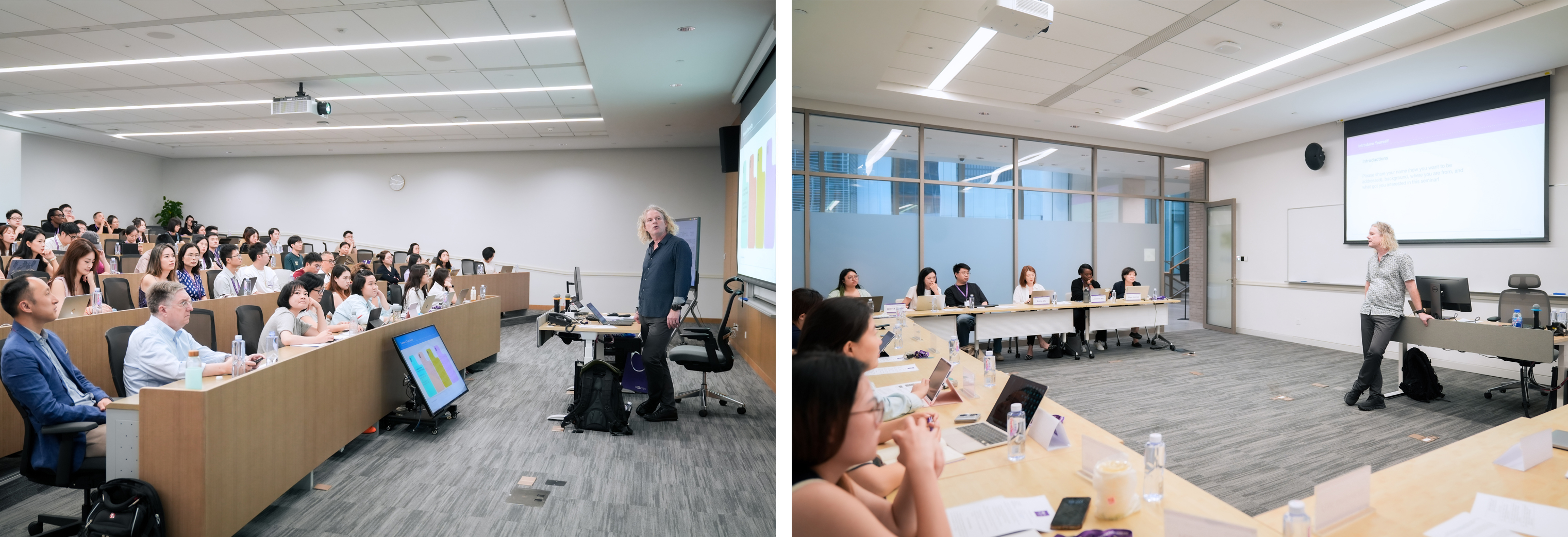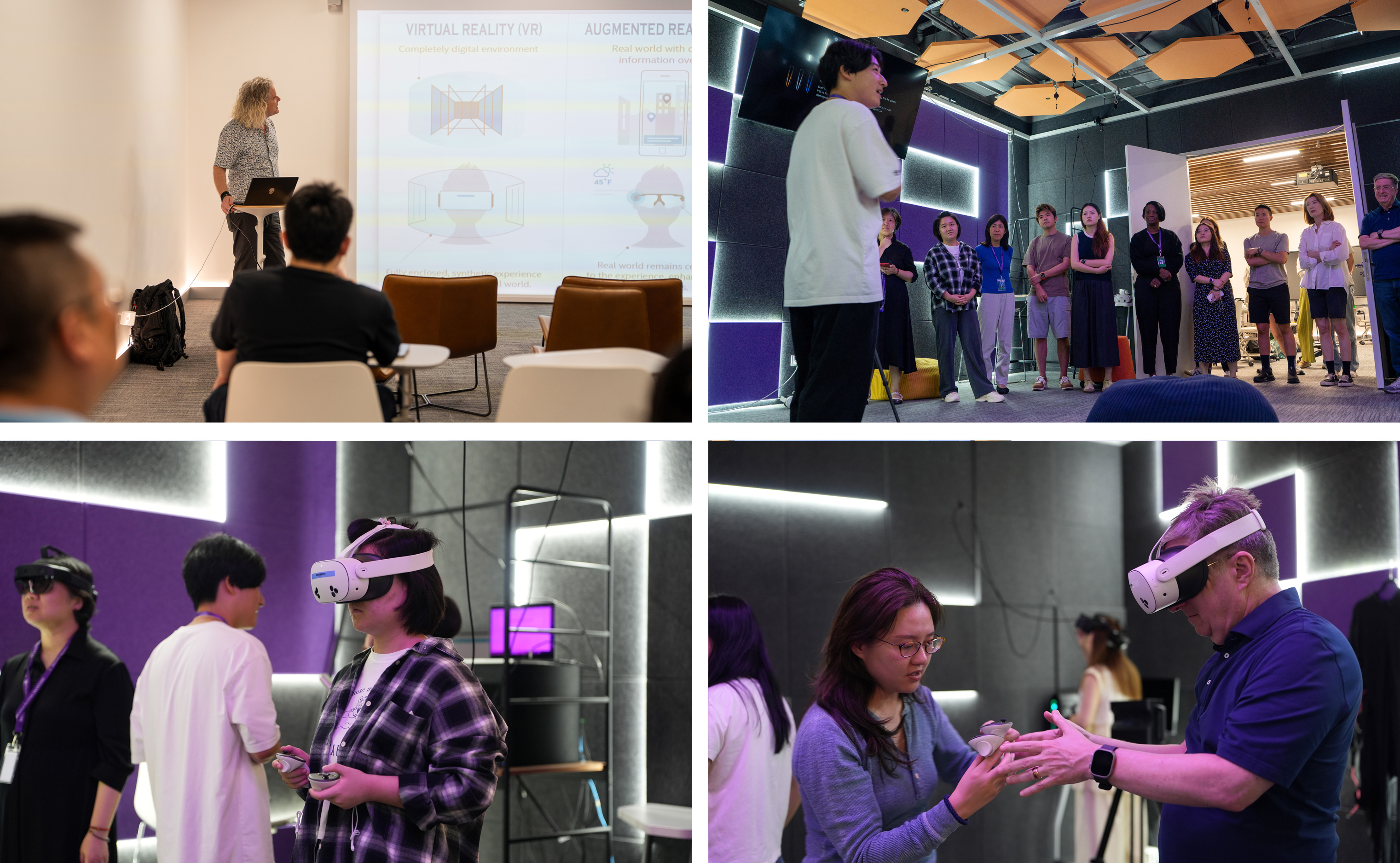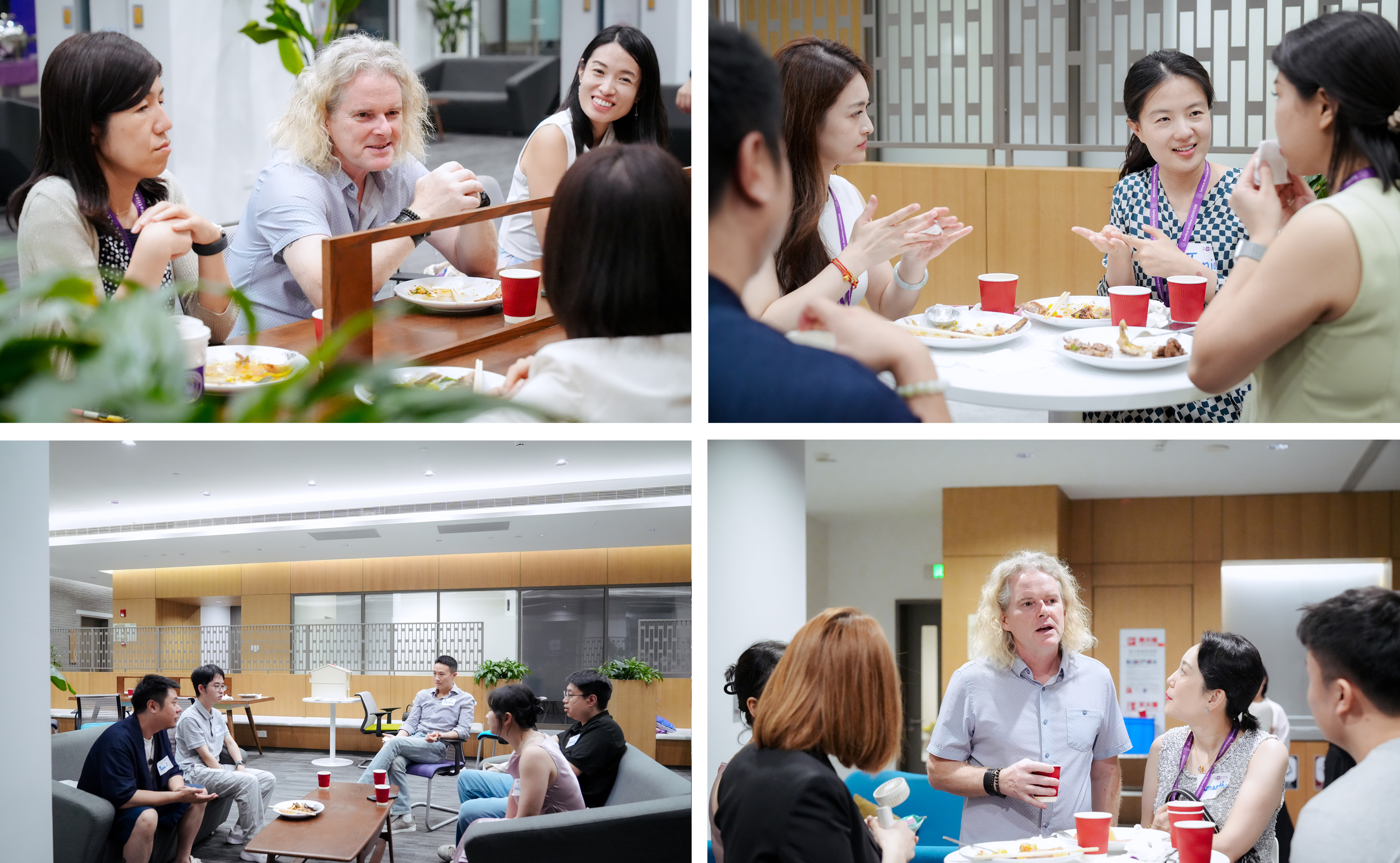This summer, NYU Shanghai launched its first non-degree program — NYU Shanghai Open Courses. The inaugural course, The Future of Learning with Innovative Media, ran from August 2 to 10.
Jointly developed by NYU Shanghai and NYU’s Steinhardt School of Culture, Education, and Human Development, the course attracted 83 students. Under the guidance of Jan L. Plass, the Paulette Goddard Professor of Digital Media and Learning Sciences at NYU, students explored the essence of learning and education and learned how to apply cutting-edge technologies and media to solve real-world problems.
In his opening remarks, Vice Chancellor Jeffrey Lehman highlighted NYU Shanghai’s reputation for high-quality education and its vision to expand options for non-degree-granting programs. “In our second decade, we are eager to extend our reach to the broader community of lifelong learners,” he said. “This course is our first effort.”
The inaugural class brought together a highly diverse group of students, aged 18 to 59, from 17 cities and regions, including Shanghai, Beijing, Hong Kong, Kuala Lumpur, and Chiba, Japan. About 40% work in education, while the rest came from the manufacturing, retail, finance, consulting, media, technology, and healthcare sectors. Notably, over half of them have eight or more years of working experience.
“This diversity is the essence of the program,” said Assistant Vice Provost for Non-Degree Programming Eric Mao. “‘Open’ stands for accessibility and inclusiveness. ‘Open’ stands for NYU Shanghai having a place for you.”

Professor Plass, a distinguished scholar in his field who also serves as founding director of the CREATE Consortium for Research and Evaluation of Advanced Technology in Education and Co-Director of the Games for Learning Institute at NYU, said he wanted to make the course accessible and customizable.
“Since this was an open course, the approach I took was to not assume too many prerequisites,” he said. “My main goal was to inspire students to develop interest and be willing to find more opportunities to investigate the topics.”

He designed the course to allow students to choose their own study path with two module choices, a core lecture module with 24 class hours held on the weekdays, with an optional additional advanced seminar module with 12 class hours held on weekday evenings with additional individual and group projects.
The class was designed to introduce people to what learning is, and what the psychology of learning means for the design of digital learning materials. Plass said he wanted to introduce how different digital media can be used to provide different learning opportunities.
The course also allowed students to reflect on the role of artificial intelligence in learning. “We need to determine which uses of AI in learning may be appropriate, and which may potentially reduce what we learn and know,” he explained.
English teacher Zhang Qixin said the class answered a nagging question: why her child was getting addicted to educational games, but wasn’t really learning anything. Through the class, she learned about Evidence-Centered Design (ECD) theory. “I realized that gaps in what should be learned, what evidence of learning should be collected, and how that evidence is gathered prevent these apps from achieving their learning goals. It’s a perspective I never had before,” she said.
Michiyo Oda, now teaching at a Japanese university, took a class with Plass at NYU a decade ago and relished the chance to study under him again. “As a student, the program covered topics relevant to my studies and clarified the bigger picture and my place within it,” she said. “As a teacher, it was fascinating to see how he scaffolded knowledge for newcomers using activities based on Bloom’s Taxonomy.”

The students, whether working in education, architecture, or automotive sectors, said they found the group projects to be eye-opening, and equally impactful was the professor's enthusiasm and dynamic teaching—together, these elements made the class deeply fulfilling. “AI is something new to everyone regardless of our backgrounds,” said architect Ye Danfeng.

Plass said that he was impressed by his non-degree students’ engagement despite balancing work and classes. “Their thoughtful questions, interest in connecting theory with practice, and productive collaboration stood out,” he said “Most impressive was how many shared that the class opened their eyes to how people learn and how technology can support it.”
Eric Mao congratulated the students on beginning new explorations. “I hope the situational interest you’ve developed here transforms into a deeper, individual interest,” he said. “Lifelong learning is not only about studying throughout life, but also about its lasting benefits.”
NYU Shanghai will continue to offer non-degree courses on a wide range of disciplines and topics. Lifelong learners are welcome to visit the program’s webpage for more information and connect via WeChat with the program by searching "nyushopencourse".


